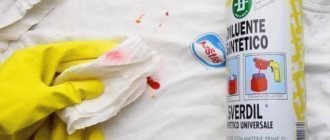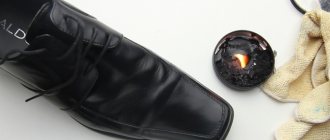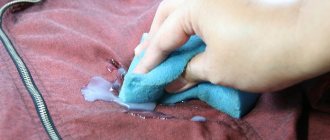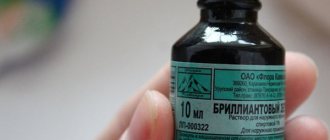No matter how fun sex can be, cleaning up after a romp in bed can be a real hassle. There's nothing more annoying than a giant cum stain in the middle of your mattress. Or blood stains splattered across the sheets like a crime scene. What the hell are you supposed to do about these stains? How to wash them?
These questions concern many people. So, we've rounded up a few experts on removing evidence of a stormy night to give you the full scoop.
Know the nature of the discharge
The first thing to know is that semen is a protein stain. There are other ingredients in its composition, but the protein is the most difficult to wash off. If semen gets on something that is not easy to put into the washing machine, such as a sofa cushion or mattress, you can treat it by hand.
“Protein stains are best treated with something like Clorox Urine Remover,” says Mary Gagliardi, aka Clorox Cleaning Expert. This product contains hydrogen peroxide, which is an excellent way to get rid of protein-based stains on many types of fabrics. First, blot the stain, then spray it with detergent, wait 3-5 minutes, and then blot with a damp cloth.
Another important thing to note is to be careful with bleach when cleaning up sperm. Joshua Miller, director of technical training for Rainbow International, a professional restoration and cleaning company, warns that bleach can transfer protein stains, such as semen, to sheets and upholstery. In other words, this stain is now here to stay forever.
Sperm don't live long
It's time to debunk the most common myth about sperm.
When a man ejaculates, he releases about 300-500 million sperm. However, most of them die within an hour. Only five to ten “lucky” ones will survive and be able to reach the fallopian tubes. But even they will not be able to survive for long under the influence of the acidic environment and the woman’s immune system. Theoretically, sperm can live up to five days, but the uterine environment is not conducive to this.
Figure 1. Structure of the sperm. Image: Kirill Borisenko / Wikipedia (CC BY-SA 4.0)
Maintain washing temperature2
After sexual intercourse is successfully completed, you may want to wash your sheets. However, there are a few things you should know before throwing them in the washing machine.
Gagliardi insists that you wash your cotton sheets and other bedding in hot water. Rest assured it won't hurt them. Vaginal fluid and semen are quite easily removed from these tissues, and the hotter the water, the better it will remove all “traces of the crime” from the bed linen.
To save your satin and silk sheets, you'll have to do things differently. “Do not rub the stain under any circumstances!” advises Gagliardi. You should first rinse the stains with cool water, pre-treat if necessary, and then hand wash them using warm water and detergent.
☛ How is vaginal treatment done?
At our clinic, gynecologists carry out the procedure for sanitizing the vagina and external genitalia in women and girls (sanitation) as follows. The drugs that are used in our work are not only well-known and, in some cases, proven to work well, miramistin and chlorhexidine. Our patients are offered modern imported antiseptic drugs that act effectively and quickly, have antimicrobial, antifungal, antiviral properties, and have a pronounced anti-inflammatory effect.
The doctor’s sequence when performing vaginal sanitation manipulation is as follows.
- Immediately before the procedure, the woman needs to empty her bladder and bowels.
- Undress below the waist and sit on the gynecological chair, closer to the edge, with your legs spread wide apart and slightly pulled up to your stomach. This position will make it easier to insert instruments and allow solutions to better act on the side walls.
- The external genital organs are treated with antiseptics, all folds and areas of the labia minora, urethra and clitoral pocket are affected (the space between the clitoral head and its hood; a frequent place for the accumulation of any discharge).
- A gynecological speculum is inserted into the vaginal cavity as deeply as possible and fixed with a stop. The vagina is cleaned of leucorrhoea with a cotton swab, after which antiseptic solutions are poured inside one by one (the so-called “vagina baths”). Process again and remove any remaining accumulated secretions. After undergoing several sanitation cycles, the expander is removed.
- After thorough rinsing and a bath, special antimicrobial creams/ointments are applied to the vagina and external genitalia, and the external labia are covered with a sterile gauze cloth.
Wash blood stains with cold water4
Sometimes passionate sex is accompanied by small blood stains, or perhaps you did not wait for the end of your partner's period. While sex is normal during this period, it can create a number of problems in your sheets. It's best, of course, to use an old set of sheets or throw an old towel under your partner.
Alas, you cannot always be prepared for the unexpected. Sometimes force majeure situations happen, especially in cases where you ignored the foreplay stage. It's important to first run the stain under cold water to remove as much blood as possible, then add a stain remover such as OxiClean All-Purpose Stain Remover Powder.
"Wait about 10 minutes and then rinse everything off with cool water," says Gagliardi. “If the stain is fresh, repeat the process again, and then finally wash the item in warm water with some laundry detergent.”
Examination in reproductive medicine
For men experiencing problems conceiving, the doctor prescribes extensive testing. It excludes pathologies that affect the quality and quantity of sperm in the ejaculate:
- hormonal dysfunctions;
- premature ejaculation;
- variring;
- congenital anomalies of the reproductive organs;
- inflammation of the urinary system, prostatitis;
- neoplasms;
- acute inflammatory conditions.
STDs can affect the quality of sperm and lead to male infertility: gardnerella, trichomoniasis, chlamydia, ureaplasmosis, viral infections.
How to determine sperm quality using laboratory diagnostic methods:
- MAR test is the main method for determining immune infertility;
- DNA fragmentation – assessment of DNA helices;
- sperm biochemistry – gives a general clinical picture of the condition of sperm;
- EMIS – for assessing functional pathologies.
At the initial stages of the examination, the doctor may prescribe a general spermogram to assess the number, motility of sperm, and the ratio in the composition of the ejaculate. An additional diagnostic tool will be ultrasound of the scrotum, prostate gland, and urinary system.
Clean grease stains immediately using the correct method5
When lube spills or drips onto the sheets from your hands or body, you'll immediately want to fix the situation. Please note that water-based and oil-based lubricants are quite simple.
“For most stains from oil- or water-based lube, you can proceed with the normal washing process,” says Miller. “Similar to cleaning semen stains, try blotting the stained area with a damp white cotton towel using a mixture of cold water and enzymatic detergent.”
When it comes to contamination from silicone grease, things are a little more complicated. But stain removal is completely doable. Before washing the sheets, it is worth pre-treating the contaminated area. "It's a good idea to pre-treat the area on a dry cloth with a strong stain remover," advises Miller. “Then you can apply an enzyme detergent or even dish soap to the stain.”
“Grease stains should be removed as quickly as possible. If you let them dry on your sheets, chances are they'll stay there forever, no matter how much you wash it,” Miller points out.
Preparing stains before washing
Depending on what tissue the contamination is located on and in what condition it is, the conditions for how to wash off the sperm are determined. But preliminary preparation of textiles simplifies the task as much as possible.
Dried stains should first be treated mechanically, namely by cleaning with a soft brush and rubbing the problem area against itself. The strength, duration and intensity of such effects depend on the quality of the textile.
Sometimes the stain needs to be pre-treated with some effective washing or cleaning product. These can be homemade substances or household chemical products. Before use, you should test the effect of the product on an inconspicuous area of fabric.
If there are old stains, it is possible to soak the textiles in a special solution. Brine or soap solution is often used.
Clean your mattress with baking soda and hydrogen peroxide6
In cases where traces of burning passion seep through the sheets, there are several options for eliminating the problem. "You can use a damp cotton towel soaked in an enzymatic detergent or a stain-removing paste made by combining cold water, dish detergent, baking soda and hydrogen peroxide," says Miller.
Always read labels carefully before mixing chemical ingredients at home. It is recommended to carry out treatment from the outer edges of the stain inward. “Blot the stained area with the paste, and within a few minutes the stain should begin to disappear,” he says.
Pro tip: Buy a mattress protector. All you have to do is just take it off every few weeks or months and throw it in the washing machine.
Sources
- Clarke H., Harrison S., Perez MJ., Kirkman-Brown J. UK guidelines for the medical and laboratory procurement and use of sperm, oocyte and embryo donors (2019). // Hum Fertil (Camb) - 2021 - Vol24 - N1 - p.3-13; PMID:31169420
- Germán Gutiérrez, Juan Carlos Riveros. Aspectos Conductuales de la Competencia de Esperma en Aves [Electronic resource] // Revista Latinoamericana de Psicología, 2003.
- José Manuel Puga Arriaga, Tatiana Poznyak, Laura Martínez Tabche, Elena Kiseleva. EFECTO DEL CROMO HEXAVALENTE SOBRE LA CINÉTICA DE MUERTE DE ESPERMATOZOIDES HUMANOS [Electronic resource] // VERTIENTES Revista Especializada en Ciencias de la Salud, 2002.
- Ashok Agarwal, Ahmad Majzoub, Saradha Baskaran. Sperm DNA Fragmentation: A New Guideline for Clinicians [Electronic resource] // The World Journal of Men's Health, 2022.
- Steven A. Ramm, Lukas Scha¨rer, Jens Ehmcke, Joachim Wistuba. Sperm competition and the evolution of spermatogenesis [Electronic resource] // Molecular Human Reproduction, 2014.
Let's start to act
You can start spying on an unfaithful partner. As a rule, it is difficult to do this yourself. If you have a good girlfriend or friend, you can ask them. But it is better to contact a private investigation agency, which, for a fairly high fee, will conduct a detailed investigation, photograph “interesting moments” and, after 3-4 weeks, provide a detailed report on the adventures of the lascivious spouse.
You have the right to ask me if there is anything new that will help recognize adultery. Let's talk about this.











